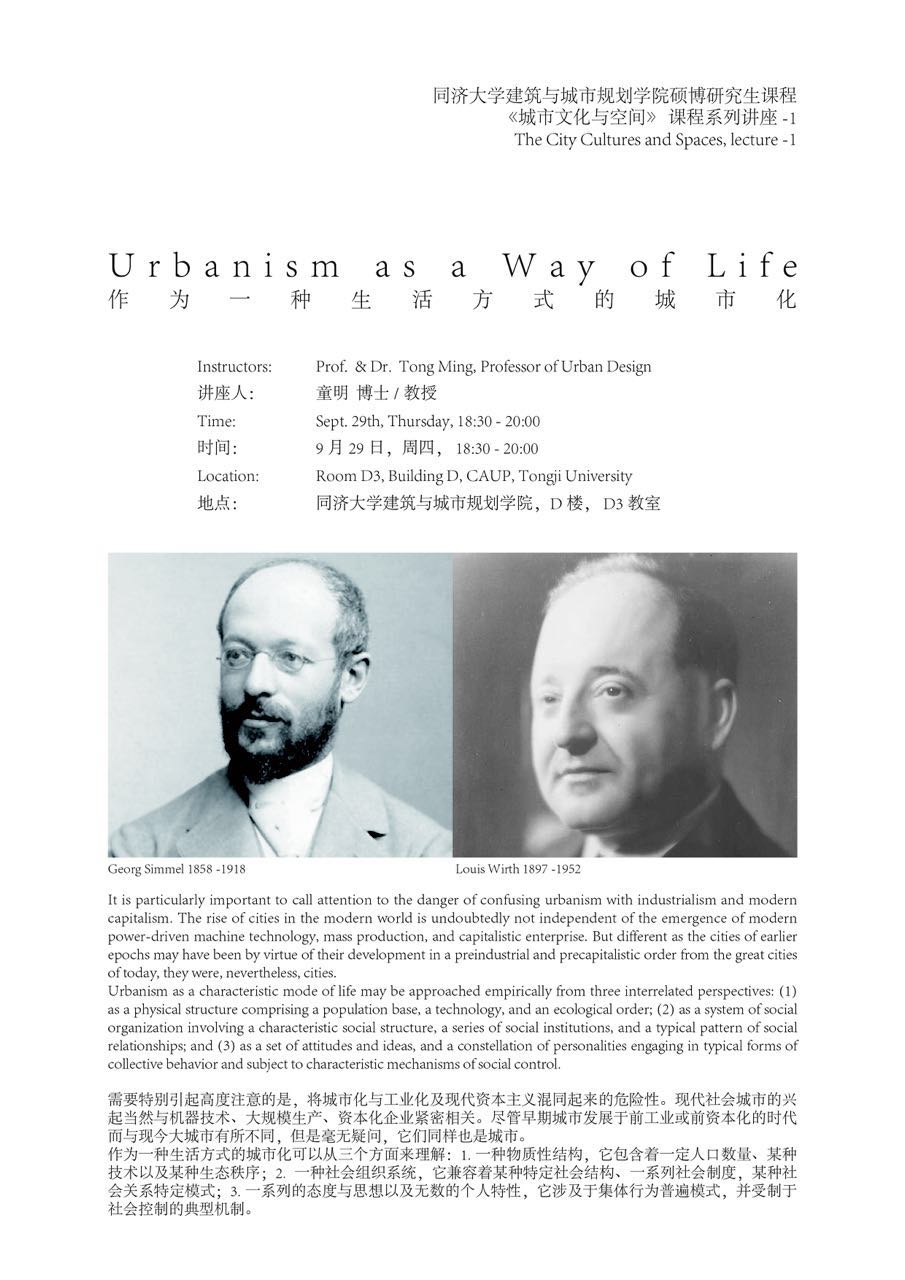新闻中心



同济大学建筑与城市规划学院硕博研究生课程,《城市文化与空间》 课程系列讲座-1
The City Cultures and Spaces, lecture -1
Urbanism as a Way of Life
作为一种生活方式的城市化
Instructors: Prof. & Dr. Tong Ming, Professor of Urban Design
讲座人:童明 博士/教授
Time: Sept. 29th, Thursday, 18:30 - 20:00
时间: 9月29日,周四, 18:30 - 20:00
Location: Room D3, Building D, CAUP, Tongji University
地点:同济大学建筑与城市规划学院,D楼, D3教室
It is particularly important to call attention to the danger of confusing urbanism with industrialism and modern capitalism. The rise of cities in the modern world is undoubtedly not independent of the emergence of modern power-driven machine technology, mass production, and capitalistic enterprise. But different as the cities of earlier epochs may have been by virtue of their development in a preindustrial and precapitalistic order from the great cities of today, they were, nevertheless, cities.
Urbanism as a characteristic mode of life may be approached empirically from three interrelated perspectives: (1) as a physical structure comprising a population base, a technology, and an ecological order; (2) as a system of social organization involving a characteristic social structure, a series of social institutions, and a typical pattern of social relationships; and (3) as a set of attitudes and ideas, and a constellation of personalities engaging in typical forms of collective behavior and subject to characteristic mechanisms of social control.
需要特别引起高度注意的是,将城市化与工业化及现代资本主义混同起来的危险性。现代社会城市的兴起当然与机器技术、大规模生产、资本化企业紧密相关。尽管早期城市发展于前工业或前资本化的时代而与现今大城市有所不同,但是毫无疑问,它们同样也是城市。
作为一种生活方式的城市化可以从三个方面来理解:1. 一种物质性结构,它包含着一定人口数量、某种技术以及某种生态秩序;2. 一种社会组织系统,它兼容着某种特定社会结构、一系列社会制度,某种社会关系特定模式;3. 一系列的态度与思想以及无数的个人特性,它涉及于集体行为普遍模式,并受制于社会控制的典型机制。
